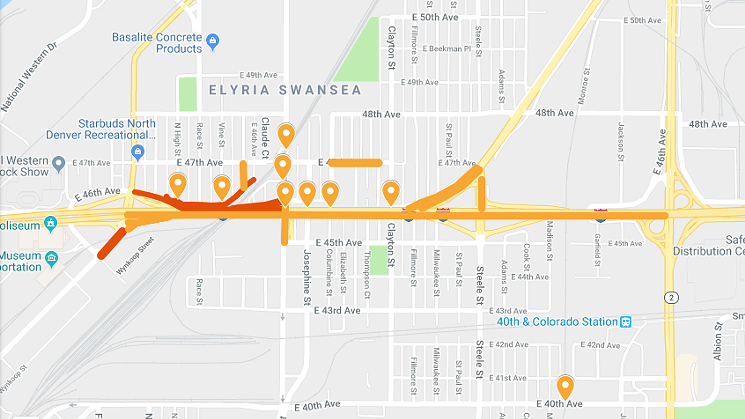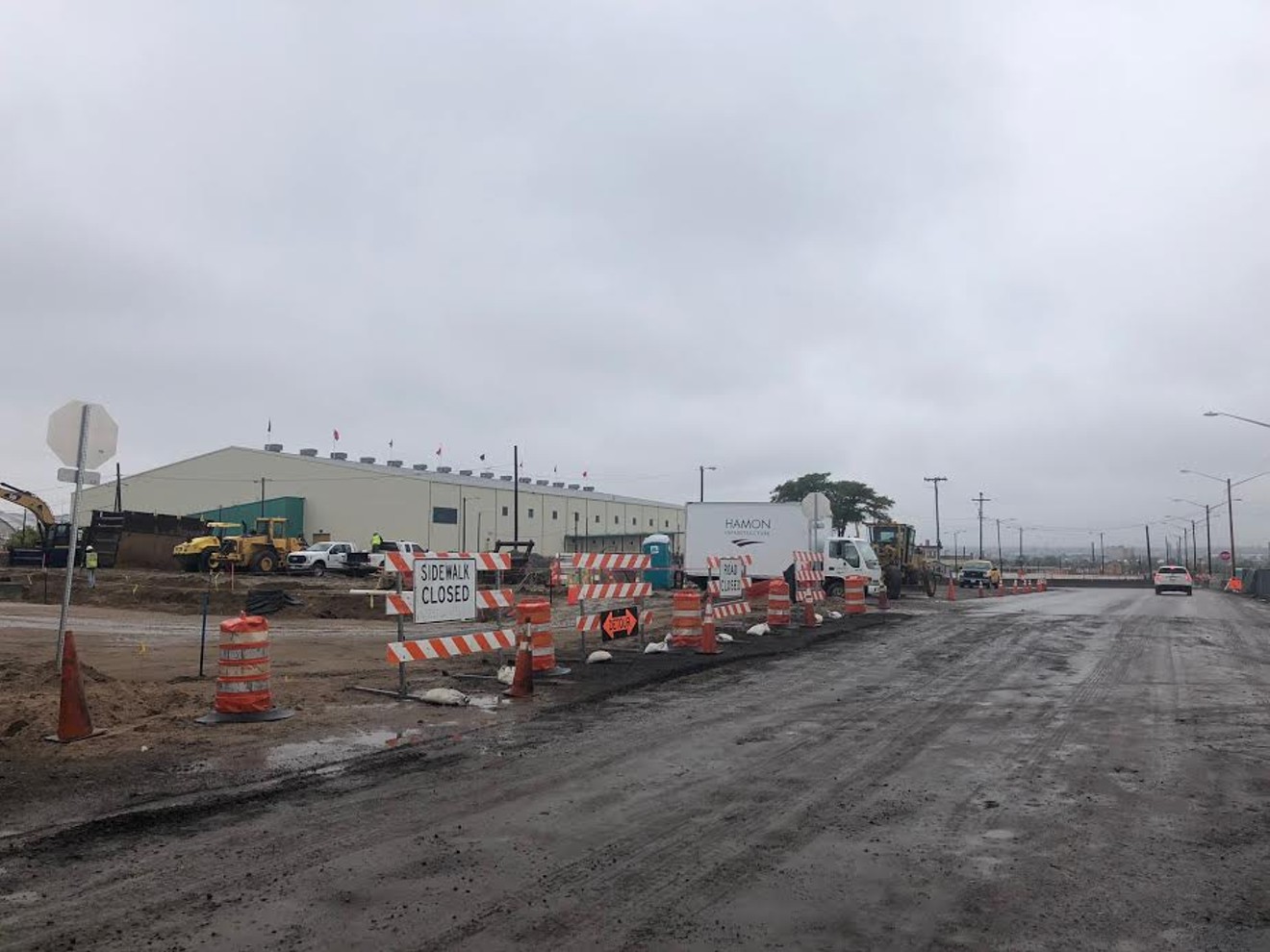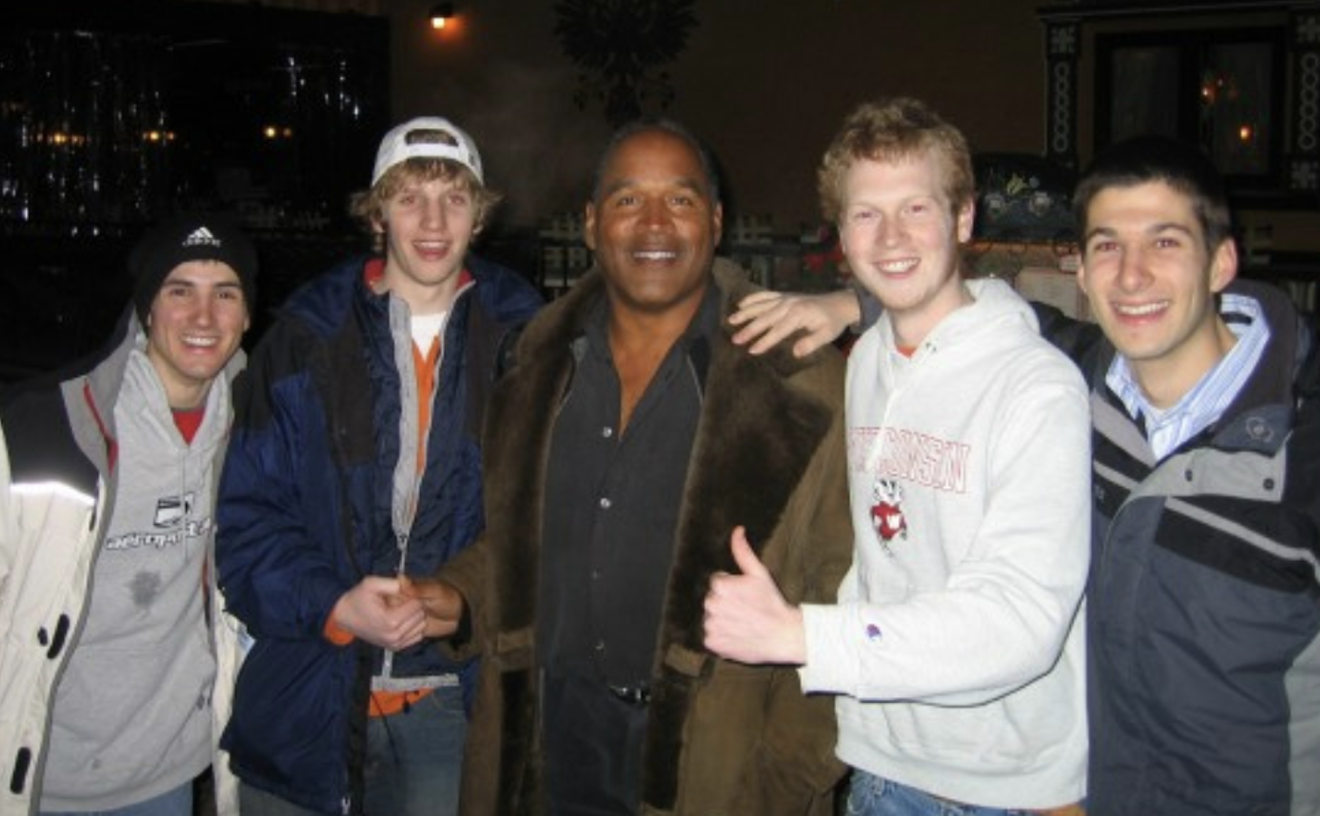Trimm knows that noise might get worse as the central portion of I-70 is rebuilt underground, with the work being done primarily during the night. She's had her attic insulated and noise-blocking storm windows applied, courtesy of the Colorado Department of Transportation. But despite a lot of focus on how noise might affect neighbors in the area, that's not a concern of Trimm's as the reconstruction project finally gets under way.
"I'd like to be able to know I can get in and out of my neighborhood," she says.
For the past month, Trimm says, it has taken her twenty minutes or longer just to get through her neighborhood to her home near 47th Avenue and Williams Street. Parking on the street? Forget it. She's lucky if she can find a spot three blocks away. What used to be a ten-minute commute to work at 60th and Broadway now takes up to an hour.
Commuters are worried about how the construction will affect their routes to work, of course. But Trimm says that the combination of Brighton Boulevard being closed north of I-70 (a city project for the National Western Complex, unrelated to the highway construction) and restrictions York Street near I-70 and 47th Avenue have led to increased traffic on 48th Avenue, and that has led to backups. Much of the traffic comes from big trucks going to and from industrial sites nearby and tow trucks hauling cars to the police impound lot near York Street and Brighton Boulevard.
"Each time I come in and out, I'm being stopped by a train or the construction crew," she says.
With some roads restricted to one lane, traffic has to take turns, and Trimm often has to wait ten or fifteen minutes before a flagger will wave cars through in either direction at peak times.

A map shows the various closures and lane restrictions in Trimm's neighborhood. Orange means lanes are restricted; red means a full-on closure.
Colorado Department of Transportation
"I think there's more that needs to be focused on than just the noise, and that's safety of the neighborhood and accessibility of the neighborhood for the families," Trimm explains. "I understand people are worried about the noise, and I'm concerned about it, too, because they haven't really used the big machinery yet. My biggest thing that I worry about is the impact on traffic and the impact on traffic through the neighborhood."
Trimm has two young kids who like to walk to the Elyria Park Recreation Center on 48th Avenue. But with what she estimates are fifty to sixty large tow trucks per day barreling down 48th Avenue to get to the police impound lot, it doesn't feel safe. Construction crews parking in the area, combined with road closures that displace street parkers, throws everyone for a loop.
On a recent visit to Trimm's home in the middle of a Tuesday, her block was nearly full of cars, and construction workers had part of the corner blocked off to work from what looked like a utility hookup. Access to a nearby alleyway was partially blocked off and has been for months, Trimm says. Add in any events at the National Western Complex, when parking spills into the neighborhood, and it's nearly impossible to find a spot.
The work on Brighton Boulevard started in February and is expected to last through December — just in time for the 2019 Stock Show, says Marcy Loughran, a spokeswoman for the National Western Center project. The work will include new curbs, gutters and pavement, protected bike lanes, pedestrian amenities, improved utilities, and drainage and water-quality improvements.
"We have worked hard to accelerate this schedule in anticipation of the Central 70 project," Loughran explains. But with Denver already having seen its first snow and the state the road is in now, that seems like a tight deadline.
Trimm also says that CDOT's notices of closures in the area haven't been current. But CDOT spokeswoman Rebecca White says the department has been using "every tool we can think of to share information," including Facebook, text alerts, newsletters, weekly emails, updates on the project's website, meetings and more.

The view from Gretchen Trimm's front yard. She's just a few houses down from the portion of I-70 that will be entirely rebuilt.
Paige Yowell
"The contractor is prohibited from closing lanes during the day in order to keep the highway moving during construction," White says in an email. "Detour routes specifically within the neighborhood are closely coordinated with the City of Denver, and the focus in planning those detours is to reduce impacts on local streets."
White says the department has also offered various accommodations for residents, in a partnership with Northeast Transportation Connections, including: two bike libraries in the neighborhood; guided walking programs; hundreds of free monthly and day passes for RTD; shuttle service for business commuters near 47th and York and along Washington Street; a free grocery shuttle; a "walking school bus" for students at Swansea Elementary School (groups of kids who walk to school together under the supervision of an adult).
But some of those options just aren't practical for someone like Trimm, who is often carting her kids around to various sports practices and activities after work.
"It's stressful, honestly," she says, "because if this is just the start..."
Unfortunately, this is far from the beginning of Trimm's saga with the I-70 project. "For four years, we didn't know if they would take my house or not," she says of the eminent-domain process. She put off renovations because she didn't want to invest in her home when she might not be fully compensated for the extent of the work. Now she's staying put and feels prepared for the loud (or louder) noises construction might bring. But parking three blocks away? An hour-long commute to her job within Denver? Not so much.
"The congestion as they start doing this project is going to be even worse through the neighborhood, because the traffic isn't going to have anywhere else to go," Trimm worries.












